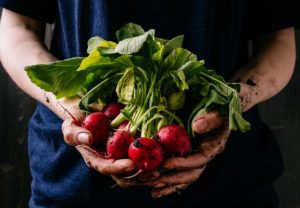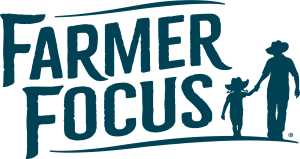HijabMan » The Labels Halal & Zabihah And Why I Choose Local And Organic Instead
The above article explains the author’s decision to prefer locally-produced, organic meat over halaal meat which has been slaughtered in accordance with Islamic guidelines. He argues that the term “halaal” only applies to the method of slaughter and says nothing about the manner in which the animal was reared, including whether it was treated humanely or indeed fed on animal-based feed including pork. He refers to this article from the website SoundVision, which brings in the issue of “mad cow” disease, a disease which can be transmitted to humans when they eat ‘infected’ meat (I use the quote marks because the disease-causing agent is a protein, not a living organism of any sort). His decision is not Islamically valid, for a number of reasons.
He mentions (or rather, quotes the SoundVision article) as saying this:
Muslims are directed in the Quran to eat food that is Halal and Tayyib. Halal is defined as food that is permissible according to Islamic law. Tayyib means wholesome, pure, nutritious and safe. Traditionally, Muslims in North America have emphasized the Halal over the Tayyib when it comes to meat consumption, Hussaini [Mazhar Hussaini, president of the North American Halal Foundation] says.
I remember listening to a lecture by Shaikh Hamza Yusuf in which he explains that there is no redundancy in the Qur’an, so if “halaal” and “tayyib” are both used, they cannot mean the same thing. The basic rules for meat to be permitted (halaal) are that they are of a species we are permitted to eat in the first place (principally herbivorous stock animals, but some schools of thought allow other animals including some carnivores), that the animal was not sick or injured and that they are slaughtered correctly and that the blessing and the name of Allah ta’ala be recited at the time (meat slaughtered according to the rituals of the Jews and Christians are permitted provided that it was not slaughtered in the name of other than Allah ta’ala; the safest position is that kosher meat is permitted but the commercial meat in the West is not, because it was not ritually slaughtered at all). Tayyib means wholesome, as the SoundVision article notes, but although this clearly excludes animals that have been fed on meat-based feeds that they are not biologically supposed to eat, it does not make them forbidden to eat, because haraam is the opposite of halaal, not of tayyib. Scholars have in fact said that animals or plants raised on haraam food are in fact permissible to eat, although it is better not to (there was an article on SunniPath or Seekers’ Guidance to this effect, but I could not find it when researching this).
The fact that meat is raised on purer food and not exposed to pesticides does not mean it is permissible to eat if it does not meet the criteria to be halaal. The majority of meat that the early Muslims were exposed to would have been just as wholesome as the organic beef and lamb of today, but the Muslims only ate it if it had been slaughtered correctly, and they were much less sure of where their next meal was coming from than any of us are. Many of the scare stories about chickens fed hormones or cows fed offal from other cows are out of date; many of these practices were banned precisely because they caused disease in livestock and humans, or because they caused public outrage. Cases of spongiform encephalopathy in humans (variant Creutzfeld-Jakob Disease) peaked in the mid-1990s, and were probably in people who had eaten contaminated beef products in the early 1980s. The meat that was being produced then was already safe, and most pathogens are killed by cooking.
There are, of course, suspicions about how halaal the meat presented as halaal really is; and stories circulate from time to time that the blessing is played over a loudspeaker, and one of the major certifying organisations in the UK will only certified meat from non-stunned animals. They also say that stunning involves shooting the animal with a bolt through the head before slaughter, which could kill it but certainly means it would be classified as an injured animal. Many of us, even if we accepted the electric shock method, would not accept that an animal be shot before slaughter. However, we hear rumours about food a lot on Islamic forums, and we do not know whether the stories that we hear are true, or if they are based on something that happened years ago but is not happening now, or are distorted “Chinese whispers”, or are simply malicious rumours. To complicate things for Muslims, the organic certifying body, the Soil Association, will not certify meat that came from an unstunned animal regardless of how it was reared, although they do not have a monopoly on the term “organic” and many supermarket branded organic products do not have their logo (much as they often do not use the Vegetarian Society’s logo either), so theoretically, organic halaal meat suppliers should not need the Soil Association’s blessing.
It is fine to be concerned about animal welfare and the wholesomeness of food, but it does not change the fact that the basic criteria for halaal do not include being organically reared and that farming methods and humane treatment do not make the meat halaal if the animal was not slaughtered correctly; in fact, the meat is considered impure and one may not pray if it is on one’s person. In this day and age, fish is readily available, even far from the sea, and there are non-meat-based alternatives such as tofu; protein can be obtained through milk and other dairy products, nuts and eggs, so no Muslim has any excuse in this day and age to eat non-halaal meat. If you are concerned about animal welfare or food quality and the halaal meat available to you is not to your satisfaction, you should not eat meat.



